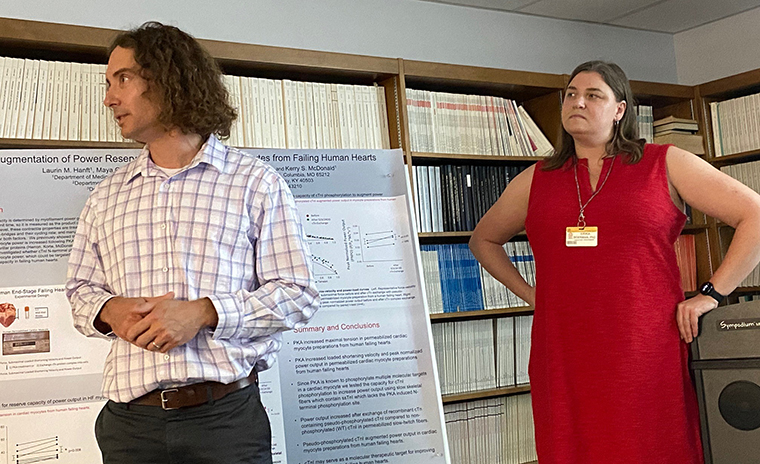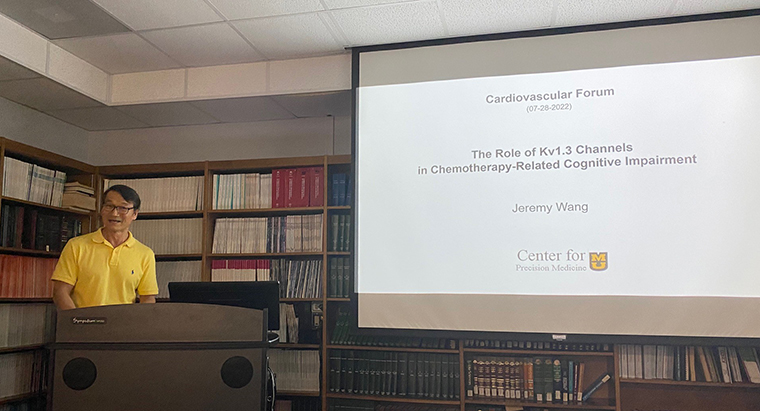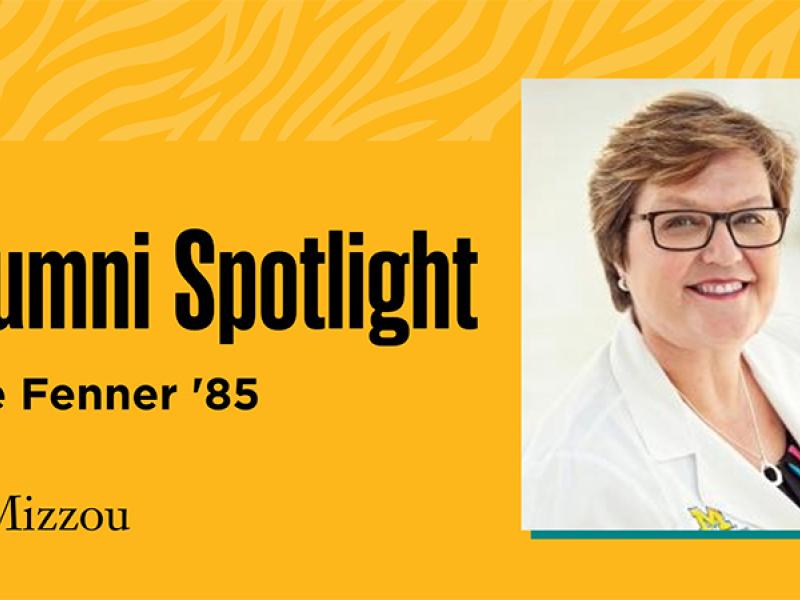Dear Colleagues,
The COVID-19 pandemic put many activities on hold across the world and on our campus. One of these activities was the opportunity of our scientists to gather in person and talk through research and discovery. Such discussions are the key to scientific advancement and allow our researchers to come up with new ideas to pursue.
Some scientific meetings are formal and arranged months in advance with a narrow focus and rigid time allotment. These are often one-way communication sessions in which the speaker gives a lecture to the audience. These have their purpose, of course, and allow the scientist to review the progress that has occurred in their chosen area of research. Other gatherings of scientists are more informal, and this is often where early ideas about future pathways for discovery are presented to colleagues with similar interests.
The MU Cardiovascular Forum in the Dalton Cardiovascular Research Center is an example of these more casual brainstorming events, which were put on hold due to the pandemic. In late July, these sessions were rekindled. The Dalton Cardiovascular Research Center is on the south campus near the baseball stadium, the MU Research Reactor (MURR), the Molecular Imaging and Theranostics Center (MITC), and the MU business incubator. There is a lot of scientific activity on our south campus! The Dalton center was constructed in 1967, and the building houses many of our MU scientists who study the cardiovascular system. The center director is Dr. Michael Hill and scientists from a variety of colleges and departments have their laboratories in this building.
For a number of years, once a month the Dalton scientists and other researchers from across campus with an interest in cardiovascular research have gathered in the Dalton conference room to discuss new and developing scientific ideas. On this late July session, which relaunched this important brainstorming seminar, Dr. Erika Boerman and her colleague, Dr. Tim Domeier, brought to the group of about 20 MU scientists some new ideas they had been thinking of about how aging of blood vessels of the gastrointestinal system might play a role in disorders such as inflammatory bowel disorders. The discussion was very interactive with back-and-forth conversations to push the envelope of our current scientific understanding in this area.

This was followed by a second presentation by Dr. Jeremy Wang on why patients with cancer who get chemotherapy can have “chemo brain” or “chemo fog” for months during and after the chemotherapy treatment. As a neurologist who has seen these patients over my career and who has used some of these drugs for neurologic disorders, I was particularly interested in this presentation, which also led to a lively conversation with questions and some preliminary answers.

These discussions are in many ways what being at a major academic health system is all about — creating an environment where brilliant scientists can interact with their peers to develop new ideas to tackle health issues. It was a real pleasure to see this important forum for communication re-emerge from the pandemic and is yet another sign that things are returning to a new normal at the University of Missouri. With the opening of the Roy Blunt NextGen Precision Health building, this monthly seminar series will alternate between the Dalton Cardiovascular Research Center and the new building.
For those of you with an interest in these types of forums and brainstorming sessions about a range of cardiovascular issues, I encourage you to attend. Keep watch for future announcements for these and other similar forums for cancer and neuroscience research.
Sincerely,

Rick Barohn, MD
Executive Vice Chancellor for Health Affairs and Hugh E. and Sarah D. Stephenson Dean, School of Medicine
rbarohn@health.missouri.edu





